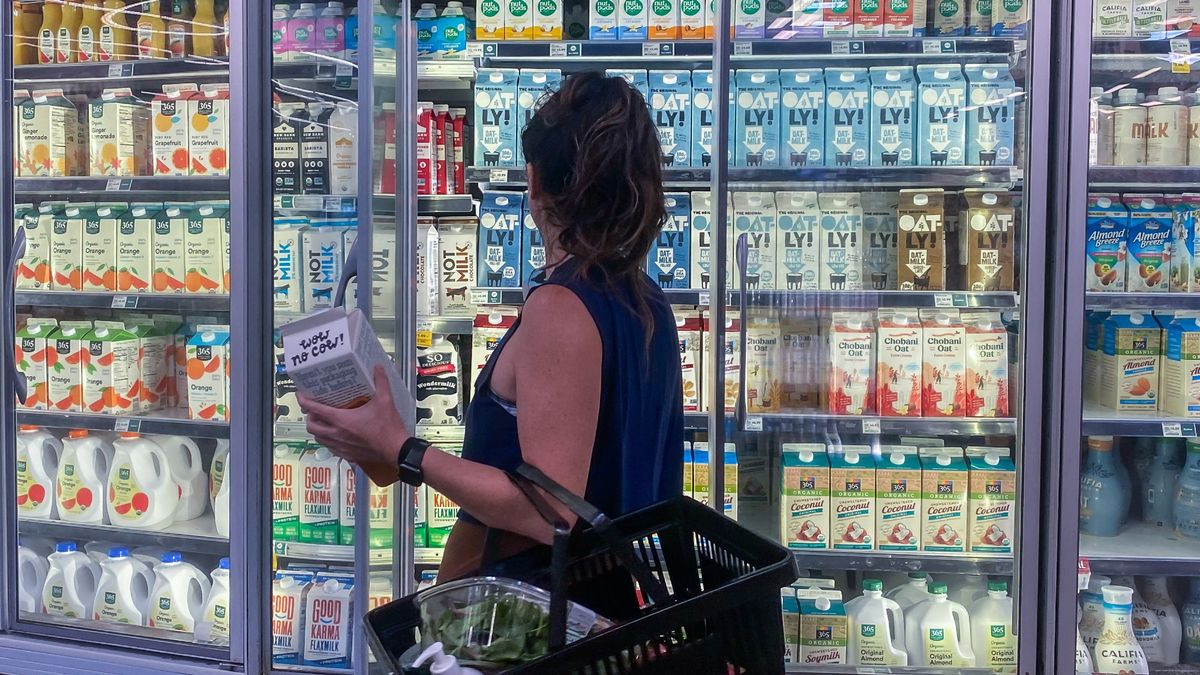Oat milk is now the UK's bestselling non-dairy milk, surging past other plant-based rivals to become the nation's go-to for a vegan cappuccino or creamy porridge.
Between 2019 and 2020, oat milk sales doubled in the UK, said the i news site, riding a wave of vegan-curious consumers attracted by its creamy texture and natural sweetness. But although it remains the most popular dairy alternative, a sharp fall-off in growth in 2023 suggests "the oat milk craze has peaked".
Pro: more environmentally friendly
Pint for pint, cow's milk has a carbon footprint between 2.5 and three times larger than plant-based alternatives. And oat milk "has a smaller carbon footprint than most of the alternatives", said The Independent.
Subscribe to The Week
Escape your echo chamber. Get the facts behind the news, plus analysis from multiple perspectives.
SUBSCRIBE & SAVE
Sign up for The Week's Free Newsletters
From our morning news briefing to a weekly Good News Newsletter, get the best of The Week delivered directly to your inbox.
From our morning news briefing to a weekly Good News Newsletter, get the best of The Week delivered directly to your inbox.
Estimates of environmental impact vary, but according to the BBC's "Sliced Bread" podcast, producing a litre of oat milk requires 12 times less space than a litre of cow's milk globally, and three times less in Europe. The figures are also persuasive for water consumption: a litre of oat milk requires five times less water than a litre of cow's milk, in Europe.
Con: intensive farming
The crop yields needed to meet soaring demand for plant-based milk are the product of "highly industrialised farming", said The Independent. When vast swathes of land are converted to production of a single crop, it creates a monoculture, "stripping out biodiversity and having a detrimental effect on pollinators".
However, it's all relative. For instance, while rice and almonds require less space than oats, they both require substantially more water. And all dairy alternatives require significantly less land and water than raising dairy cattle.
Pro: flavour profile
Oat milk's creamy taste and consistency is usually described as the most similar to dairy milk, which is good news if you love cow's milk and are switching purely for ethical reasons.
If you're no stranger to an oat milk latte, you'll know that oat milk froths up into a foam comparable to the kind you'd get from cow's milk – which can't be said for all dairy alternatives.
Con: not suitable for all diets
Even unsweetened oat milk "can add up to 30g of carbs (similar to two slices of bread) to your favourite coffee order", wrote dietitian Susie Burrell for The Sydney Morning Herald. Those carbs include starch, which converts to sugar when consumed and causes a temporary spike in blood glucose levels. But "if you're not diabetic and otherwise eat well", take the panic-inducing headlines with a pinch of salt, wrote Vox's senior environmental reporter, Benji Jones. "It's normal for food to raise your blood sugar."
Oat milk also contains fibre – no bad thing in itself, as it "promotes bowel regularity", said the i news site, but if you're sensitive to fibre or simply drink too much, it "can lead to bloating and gassiness".
Pro: allergy- and intolerance-friendly
The increased availability of plant-based milks in cafes and supermarkets in recent years has been a boon for those with lactose intolerance. However, oat milk is especially friendly to those with food sensitivities or allergies.
Soy milk and almond milk are among the best-selling milk alternatives, but their principal ingredients are also common allergens. Oat allergies are rare, in comparison. But consumers should always check the label first for unexpected ingredients or cross-contamination risks.
Con: missing nutrients
Cow's milk is packed with nutrients including calcium, iron, magnesium, iodine and vitamins B2 and B12, so if you're swapping dairy for oat milk, you may need to adjust your diet to ensure you're getting enough of those vitamins and minerals elsewhere – or look for fortified oat milks.
If protein content is important to you, opt for soy milk, which is "closest nutritionally to dairy milk" and contains a similar amount of protein – around 8g per 250ml glass, said Burrell for The Sydney Morning Herald.















0 Response to "Pros and cons of oat milk - The Week"
Post a Comment